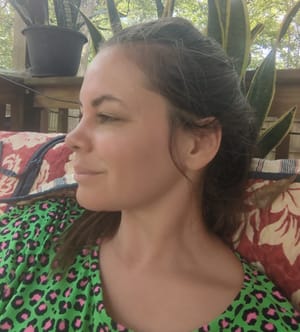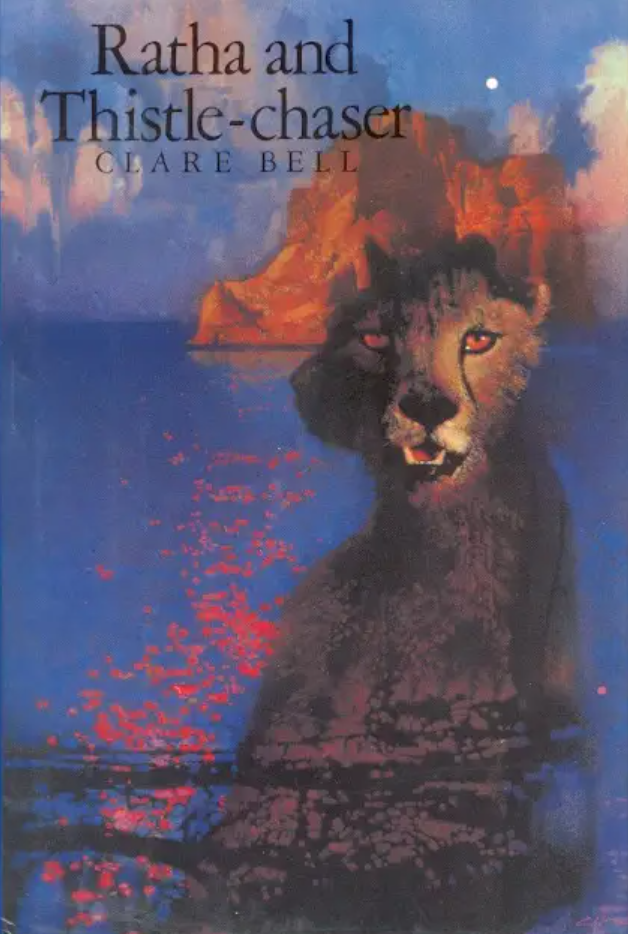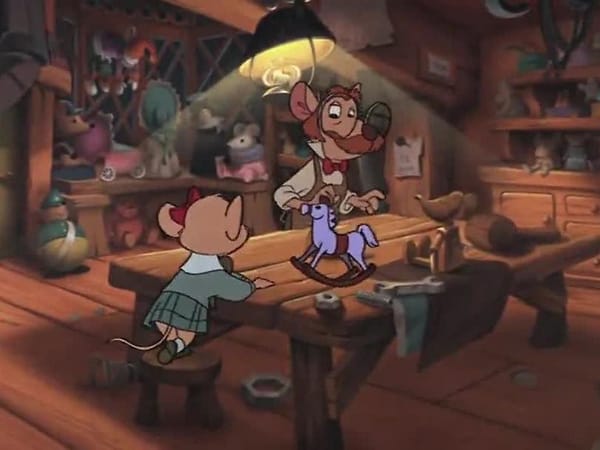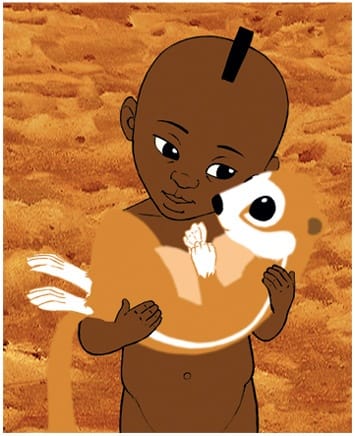When I say "a story landed on me," what I mean to say is that I feel the imprint of the story surround me until the title either forms in my thoughts or bubbles up from my surroundings. This has happened even with films and books I've never seen or heard of, or have only a passing knowledge of the title. When they land on me, there's usually a reason – either I'm living it out, it's active in the air of the relationships that surround me, it's part of an inner code, or there's something valuable in the story itself that I'll notice if I check it out.
I had been living in a van-sized motorhome in Arizona for about three continuous months in the winter of 2020. Every day, as it had been for about a year, was about finding fresh water, dumping sewage, getting food, taking care of Sous Vide, my cat, and Harriet, my small dog, staying warm, and finding a new place to park nearly every night. The surrounding states had closed their campgrounds so an already busy time of year was very difficult.
I was cooking in a small steel pot leftover from the main house my ex-husband had owned. I chose to sell my own house in 2019 and that was not easy. Without social support, it was hard to keep going.
I'd just gotten off the phone with someone who knew me well and who could penetrate into a situation when necessary. He helped me see how worn down I'd gotten, said he was really worried, and offered to come and get me (a tangible gesture I'd never really heard from anyone). I declined his offer, but his concern shook me awake.
Cooking then, on the little stove in the van, something about the way I was stirring the pot, the grief that had haunted me, the fact that only once in so many months had I seen someone in person who recognized me and who knew my name, jarred Grave of the Fireflies into my consciousness. I stopped what I was doing.
The Tale of the Princess Kaguya came out in 2013. I saw it at the Arclight in LA with Jordan and my not-yet-stepdaughter. At the title screen, the delicate washi paper and the emotional hand-drawn elements, I only had one thought: This movie is going to fuck me up.
I cried so hard I could barely walk out of the theater.
After I saw Kaguya-hime, something in me was different. It was like I no longer had the ability to shove my feelings down like I had in the past.
the theme of wanting to live life fully, to enjoy Earth, without regret
– something unlocked.
Takahata had directed Grave of the Fireflies much earlier. I'd seen it in college. (Nobody in Intro to Japanese Film was prepared for it. We all walked out in silence afterwards.)
I took another look at this story as I faced a big choice – selling the (motor)home I'd been in since the last home I'd been in had gone since the last home I'd been in had gone since Jordan's house.
I watched this interview with Isao Takahata:
I hadn't known the film was based on a novel. I hadn't known the novel had been written by a survivor of the war whose sister had died in same way as the child(ren) in the film.
(Also interesting, and slightly funny – it was double-featured with My Neighbor Totoro and people responded differently depending on whether Totoro was shown first or second.)
When I heard him say the following, I let it sink in.
Many people in Japan sympathized with Seita. I was actually quite surprised by this. When I was making it, I saw him rather like the children of today. He saved money and thought he could manage on that, which is quite strange for those days. So he doesn't obey his aunt. He thought he could live without relying on her. But unlike the children of today, he could do housework. His mother was weak, so he could do all of those things. He felt he could manage to live. Just like the children of today, he didn't try to get along with others... even if he was humiliated. He had his sister to protect. He was short-tempered, too, and had no perseverence. Children today think they can buy anything if they have enough money, and Seita, too, thought money could buy anything and solve everything. But in reality, in those days, money didn't help much. It was during the war, and I know this from my own experience. There were so many people that survived by persevering even under much harsher circumstances. But Seita wasn't patient enough. He thought he could live on like that. I hoped the audience in Japan could see that although they sympathized with Seita, living like him could mean death.
But the Japanese audience didn't really see this. They only felt sorry for Seita. Criticism toward Seita's character would not have surprised me, and I even hoped to hear it, but I did not get this kind of feedback.
I was willing to hear from this man that it was foolish to think money had much utility of its own. I was willing to hear that keeping social connections intact was what mattered.
I do think this story illustrates a generation gap about the need for emotional survival in addition to the need for physical survival.
Takahata's generation and my grandparents' generations had to focus intensively on their physical survival. I see Seita as someone who needs to preserve his own emotional survival in the wake of the death of his mother.
But I listened to Takahata. I decided to make the strongest choice I could and sell the van before a choice was made for me in the form of accident of illness.
Once I got to Minnesota and felt more stable, I did more research on Grave of the Fireflies and read an interview with Takahata and Akiyuki Nosaka, the author of the novel. He says:
My sister's death is an exact match with the novel. It was one week after the end of the war. At the countryside of Fukui prefecture where I was, the lighting restrictions had been removed. ... It was the evening, and I was picking up my sister's bones. I was coming home in a daze when I saw the village light up. There was nothing like my surprise then. My sister had died in my side of the world, and light was coming back in the other. The return of light also implies the return of peace, and at that time, I felt from deep within that I'd survived, which was also very scary.
Here I understood my connection to this story. Living on in the wake of the death of a loved one is scary. I had had a part of me that was wanting to stay "back there" with my grandmother, who had died right before I turned 11. My experience of her suffering and death was formative. It changed my attitude toward life and gave me a fearlessness and a sense of time pressure on one hand, but because I'd never been able to talk about my feelings, they stayed unresolved. When more endings and grief piled on top of this original loss, it was too much.
I also came to learn that Nosaka had written a healing story for himself that wanted to portray an idealized relationship. He says:
There are many things I just couldn't write into the story. During composition, the older brother got increasingly transformed into a better human being. I was trying to compensate for everything I couldn't do myself. I was never kind like the main character. I always thought I wanted to perform these generous acts in my head, but I couldn't do so. I always thought I wouldn't eat and would give the food to my little sister, but when I actually had the piece of food in my hand, I was hungry after all, so I'd eat it. And there was nothing like the deliciousness of eating in a situation like that. And the pain that followed was just as big. I'd think there is no one more hopeless in the world than me. I didn't put anything about this in the novel.
I could understand now that Grave of the Fireflies is a kind of deep fantasy. The main element of this fantasy is that the brother himself dies alongside the sister instead of having to figure out the mess of living.
When I looked at this story, it changed my understanding of the nature of fiction and it changed my values around the writing of fiction and fantasy.
Jordan wrote a similar fantasy that omits the reality of what happened in our relationship and creates something that feels better to him.
I feel appreciation for Takahata and how his work helped open me to the deepest elements of my own life. I loved my grandmother and I'll always be listening for her. I'm glad I have this special connection to stories because it's one of the ways I hear from the people we can't always see.





Member discussion